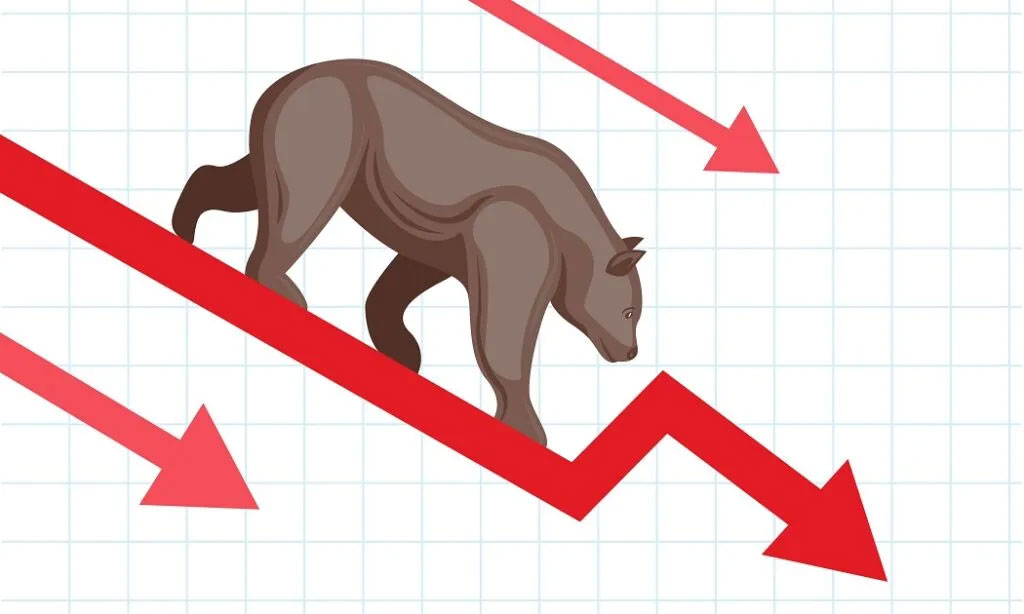Markets go through their boom and bust cycles, and it's normal to get skittish when the numbers are falling. You don't have to run away from a bear market though. Even when all the indices are falling, falling, falling, there's still somebody buying every stock that sells. Find out how you can keep your hand in when the going gets rough, and psychological pitfalls you need to look out for in a bear market.
Watch Out for Fallacies

The psychology of a bear market is marked by bad thinking above all else. Fallacies affect investors' ability to make accurate assessments, and to take smart action to save their portfolios. In particular, look out for sending good money after bad. A bad investment is just bad; get out of it. Don't worry about what hypothetical potential you've lost, or how it would be a shame to cut and run now. All that matters is where you think this investment is going next. Make a clear assessment, decide what's likely to happen, and cut bait when it makes sense to do it.
Find Your Niche

Bear markets are characterized by overall declines, not total collapses. That means that there's still opportunity, as some investments rise against the collapsing scenery in the background. Finding those niches can take work, but if you sniff one out you could be in great shape. As a rule, bear markets see agitated money moving from mainline index funds and conventional bonds into more exotic markets that don't get much attention while things are good. Look for foreign investments, including currency markets, development bonds, and maybe even hard assets like farmland to stay stable as the headline investments continue to fall.


